Iran carried out 157 executions in May, rights group says
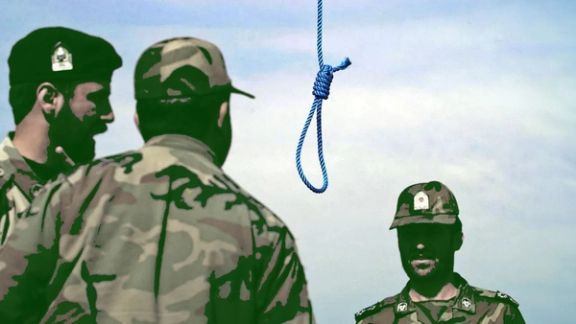
Iran executed at least 157 people last month, the highest monthly figure this year, according to US-based Human Rights Activists News Agency (HRANA).

Iran executed at least 157 people last month, the highest monthly figure this year, according to US-based Human Rights Activists News Agency (HRANA).
Most were executed after being convicted of murder or drug-related offenses, while others faced charges such as rape or corruption on earth.
HRANA also reported the execution of political prisoner Pedram Madani on charges of allegedly spying for Israel, as well as a public hanging in Lorestan province.
Twelve new death sentences were issued in May, including for political prisoner Mohammad-Amin Mahdavi Shayesteh and poet Peyman Farah-Avar, whose charges stemmed from protest-related writings, the group said.
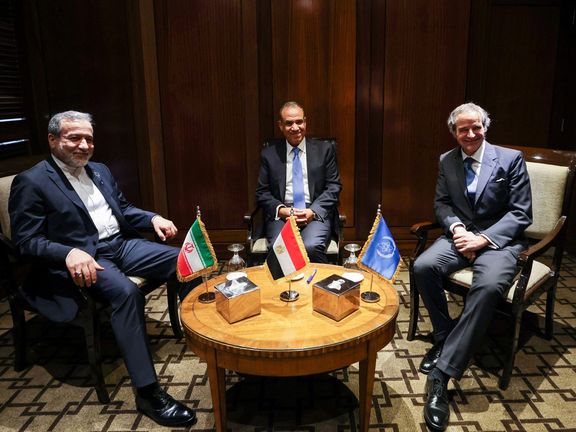
Iranian Foreign Minister Abbas Araghchi said on Monday that Tehran will not accept any nuclear agreement that strips the country of its right to peaceful nuclear technology, warning that negotiations will fail if Washington insists on limiting Iran’s enrichment capabilities.
Speaking in Cairo after meeting Egyptian Foreign Minister Badr Abdelatty and International Atomic Energy Agency Director General Rafael Grossi, Araghchi said: “If the United States seeks to deprive us of nuclear technology, there will definitely be no agreement.”
He emphasized that uranium enrichment is Iran’s right under international treaties.
“The International Atomic Energy Agency must remain a technical body and not be swayed by political pressure,” he added.
Last week, the IAEA said that Iran operated a covert nuclear program using undeclared material at three sites under investigation.
Araghchi’s comments come amid nuclear talks mediated by Oman.
Also on Monday, Reuters cited an unnamed Iranian diplomat as saying that Tehran is preparing to formally reject a recent US proposal, calling it “one-sided” and “a non-starter.”
The proposal, delivered on Saturday by Oman’s Foreign Minister Badr bin Hamad Al Busaidi fails to address Tehran’s core demands—including recognition of its right to enrich uranium and the immediate lifting of US sanctions, according to Reuters.
“In this proposal, there is no change to the US position on enrichment, and no clarity on sanction relief,” the diplomat said.
He added that Iran’s nuclear negotiation committee, which reports to Supreme Leader Ali Khamenei, has assessed the proposal as incompatible with Iranian interests.
An Iranian official familiar with the matter was also cited by Iranian state-linked media as saying that Tehran does not view the latest US proposal in nuclear talks as a fair basis for agreement.
“The recent US proposal for a new nuclear deal with Iran is unacceptable,” the unnamed source was quoted as saying. “It cannot serve as a fair foundation for any potential compromise.”
Iran has consistently said that its nuclear program is for peaceful purposes. However, Western powers have accused Tehran of seeking nuclear weapons capabilities—allegations Iran denies.
Iran is the only non-nuclear weapon state enriching uranium to 60% U-235. The IAEA has consistently maintained that there is no credible civilian use for uranium enriched to this level, which is a short technical step from weapons-grade 90% fissile material.
Iran's stockpile of 60% enriched uranium had increased to 275 kg, enough to theoretically make about half a dozen weapons if Iran further enriches the uranium.
Two Iranian officials told Reuters last week that Iran might consider pausing enrichment if the US unfreezes Iranian assets and acknowledges Iran’s civilian enrichment rights as part of a broader political understanding.
Last month, Khamenei said there will be no concessions on enrichment. "Saying things like 'we won’t allow Iran to enrich uranium' is way out of line. No one is waiting for anyone’s permission," he said. "The Islamic Republic has its own policy, its own approach, and it will continue to pursue it."
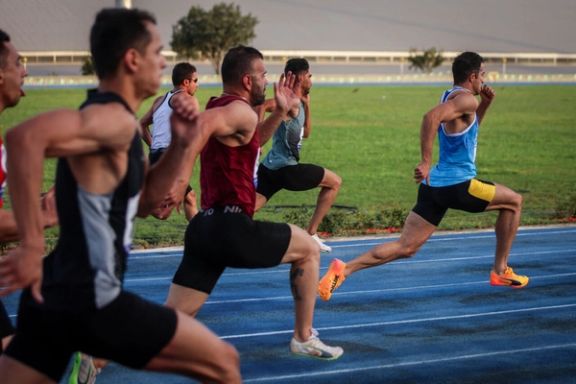
Iran's Athletics Federation said it will take disciplinary action after reports that two athletes and a coach were arrested for alleged sexual assault during the 2025 Asian Athletics Championships in South Korea.
“Three members of the national team committed inappropriate behavior on the sidelines of the Asian Championships,” the statement said, adding that the matter is under review and disciplinary action will be taken in accordance with regulations.
South Korean police said on Saturday that two Iranian athletes and a coach were arrested in the city of Gumi after a local woman, 20, alleged she had been sexually assaulted at a hotel, where the Iranian delegation was staying.
Iranian newspaper Khabar Varzeshi on Monday published a detailed account of the alleged group sexual assault.
Citing an eyewitness, Khabar Varzeshi reported that around 6 a.m., a 20-year-old Korean woman arrived at the hotel with an Iranian athlete referred to as K, after meeting him at a bar. A second athlete, R, later joined them in the room, followed by a third, M, whose presence prompted the woman to object.
The woman, the report said, entered the bathroom and discreetly sent her location to police. Authorities arrived shortly after and, based on her complaint of group sexual assault, arrested the three.
According to Khabar Varzeshi, the accused claim the first two encounters were consensual and only the third was forced. Police, however, reportedly dismissed this distinction and detained all three men.
The hotel remains under heightened security despite the arrests, the paper added.
Iran’s Ministry of Sports pledged to address the issue, with a senior official, Shervin Asbaghian, saying that serious action would be taken against anyone found responsible.
“We have no tolerance for violations of ethical conduct,” he told Iran’s state news agency IRNA, while calling for a full investigation once the delegation returns to Iran.
It is the latest scandal to rock the sport. Federation president Ehsan Hadadi, who was one of several senior officials on the delegation, has been at the center of allegations of corruption In recent months.
Athletes and coaches have held protest gatherings outside the Ministry of Sports building in Tehran, calling for his resignation, citing concerns over alleged misconduct and mismanagement.
South Korean authorities have not yet confirmed whether formal charges will be filed, and the investigation remains ongoing.
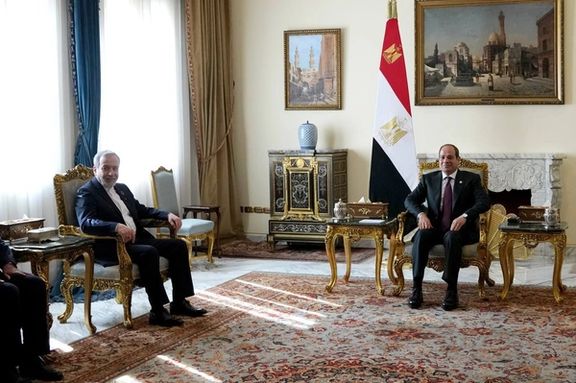
The United States and Egypt discussed Washington's negotiations with Iran over its nuclear program as Iranian Foreign Minister Abbas Araghchi arrived in Cairo on Sunday.
US President Donald Trump’s special envoy for the Middle East, Steve Witkoff, spoke with Egypt’s Foreign Minister Badr Abdelatty on Sunday evening, according to an official Egyptian readout.
Abdelatty expressed Cairo’s support for the talks, saying, “The US-Iranian talks represent a critical opportunity to achieve calm and de-escalation in the region and prevent its slide into total chaos.”
Araghchi arrived in Cairo on Sunday for talks with senior Egyptian officials focusing on bilateral relations.
On Monday, Araghchi met Egyptian President Abdel Fattah el-Sisi in Cairo.
Earlier in the day, Iran’s foreign ministry spokesman Esmail Baghaei said that during Araghchi’s visit to Egypt, the foreign minister may discuss ongoing indirect negotiations with the United States.
Responding to reports of a planned meeting between Araghchi and IAEA Director General Rafael Grossi in Egypt, Baghaei said the meeting “cannot be confirmed.”
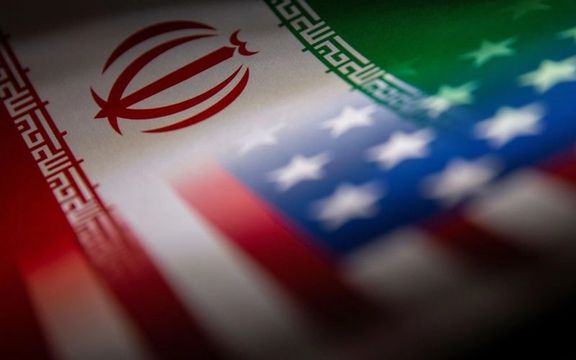
The White House has issued a directive to pause all new sanctions activity toward Iran, the Wall Street Journal reported on Sunday, citing a source close to the administration.
According to the report, White House press secretary Karoline Leavitt issued the order last week, halting measures that had been part of President Donald Trump’s ongoing "maximum pressure" campaign.
The directive was passed to senior officials at the National Security Council, the Treasury Department, and the State Department, the report said.
While the White House did not deny the sanctions pause, deputy press secretary Anna Kelly said in a statement to the Journal: “Any new decisions with regard to sanctions will be announced by the White House or relevant agencies within the administration.”
The report said that Trump officials view the move as a temporary slowdown aimed at reviewing potential sanctions more carefully amid sensitive nuclear negotiations, and that it was overinterpreted somewhere along the chain.
Others expressed concern that key policymakers have been out of the loop and surprised by the sweeping pause.
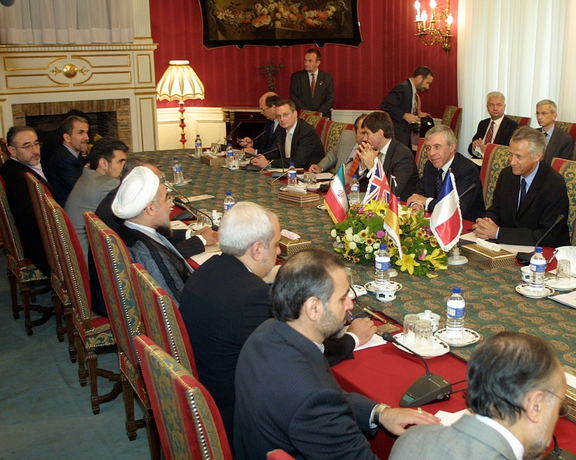
A senior Iranian lawmaker warned on Sunday that Tehran should not sign a deal similar to the 2003 Saadabad Agreement with world powers, which suspended its enrichment program and allowed snap UN inspections.
Abolfazl Zohrehvand, a member of the Iranian parliament's national security and foreign policy committee, said the 2003 agreement, which led to the Tehran Declaration, was a "strategic mistake" that should not be repeated.
In October 2003, Iran agreed to suspend uranium enrichment and permit enhanced inspections by the International Atomic Energy Agency (IAEA) to demonstrate the peaceful nature of its nuclear program and avoid referral to the United Nations Security Council.
The agreement was signed by Iran's then-Secretary of the Supreme National Security Council, Hassan Rouhani, along with the foreign ministers of the United Kingdom, France, and Germany at Tehran's Saadabad Palace. It temporarily averted escalation of the nuclear dispute.
However, following the election of President Mahmoud Ahmadinejad in 2005, Iran resumed uranium conversion activities at the Isfahan facility in August 2005 and enrichment at the Natanz facility in early 2006. By April 2006, Iran announced it had successfully enriched uranium to a purity level of approximately 3.5%, marking a significant advancement in its nuclear capabilities.
Zohrehvand said in an interview with Didban Iran that Tehran agreed in 2003 to suspend enrichment, signed the Saadabad agreement, and fulfilled its commitments by sealing the Natanz enrichment facility and the yellowcake production facility in Isfahan.
However, despite several rounds of negotiations, Iran’s request for reciprocal measures from the West went unmet, he added.
He said during that period, President Mohammad Khatami had tried to formally transfer a centrifuge to Tehran University to demonstrate Iran’s mastery of centrifuge technology. However, he said, then-Foreign Minister Kamal Kharrazi contacted British Foreign Secretary Jack Straw to coordinate the move, only to be told it was not permitted and that all centrifuges had to be dismantled.
Zohrehvand also noted that following a visit to Tehran, the German foreign minister went directly to Israel and announced, “We told the Iranians to dismantle their enrichment program entirely.”
According to Zohrehvand, today’s Western demands echo the same expectations as those of two decades ago.
“This same model is being repeated again,” he warned.
Zohrehvand said while a temporary suspension of enrichment in return for sanctions relief might now be acceptable, it would be naïve to believe that the United States would be satisfied with such a deal.
“If resolving the issue merely means suspending or halting enrichment, it could happen—there’s no problem with suspending enrichment for a few years in exchange for the suspension or lifting of sanctions,” Zohrehvand said.
“But believing that the Americans would be content with that is simplistic.”